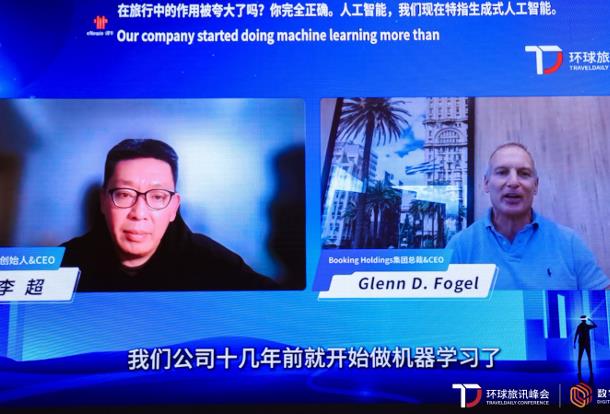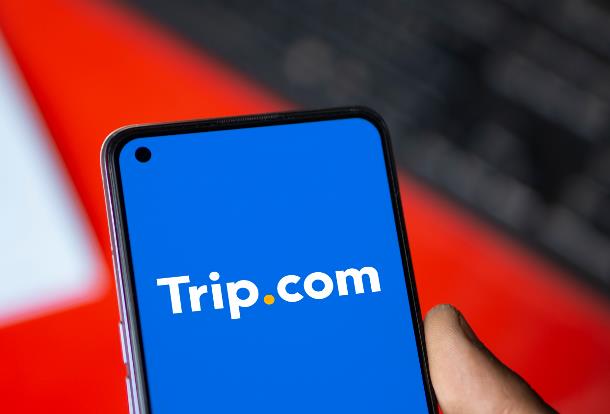ChinaTravelNews, Ritesh Gupta - You are browsing online, planning a room booking and you come across an offer on a hotel brand website, and one on an OTA site, too.
The clincher or what you decide upon is invariably the “value” offered. This value could be driven by price or even what all is there in the offer, rather than just selling a room for night stay.
When I spoke to a senior hotel executive, it emerged that OTAs still tend to be sharper in this arena.
“If we were to talk of China, Ctrip is ahead of others,” he mentioned.
He said OTAs do manage to win the “mind-game” with consumers and offer a higher perceived value when a traveller sees an offer on an OTA site, rather than the hotel website. “The OTAs have created immense travel super markets, providing consumers with great choice,” the executive said. “Hotel brands continue to operate in the opposite direction, perceiving value based pricing in terms of always meaning “additional value elements” included within the price.” So what does this mean?
It essentially points to the fact that OTAs tend to offer an experience around the journey, and don’t just focus on one aspect of travel i. e. room booking.
“They (OTAs) could be selling an experience around a destination. And accordingly, hotel + flight + car rental etc. is being offered.” He continued, “A hotel might do a great job in offering a room along with an upgrade or any other hotel amenity, but generally have a very narrow focus (largely tends to be around the property). Today the need of the hour is to work out effective “retailing”, which OTAs are seemingly doing better.” Also, retailing isn’t just about products that can enhance the trip experience, but also the sort of content that can help a traveller in taking a shopping decision. “For instance, OTAs are bringing more qualifying information to customers’ attention that helps them in taking a decision.”
Jun Lai, GM - Greater China, Booking.com, says, “For us, we think value certainly stands for something beyond prices.” He added that the quality and the scope of services provided constitute a major chunk of the “value” for the company.
Definition of value
Bhanu Chopra, CEO, Rategain says value-based pricing is the practice of determining prices based on the value that the customer perceives within the offering. This is in contrast to cost-based pricing or competitor-based pricing.
Citing examples, he shared: For hotels it could be package or rate codes like Business travel Plus/ plans at higher prices with complimentary meeting space. An airport transfer for higher priced rooms is another example. OTA offer packages including stays, flights and sometimes airport transfers, he shared.
Chopra explained that there are two principles that need to be considered with value-based pricing.
First, in case of value-based pricing approach there is an attempt to make more revenue by striking a balance between volume and price. “In terms of the hospitality industry, it’s about reaching a higher RevPAR, which is about striking a balance between maximizing occupancy and ADR,” he says.
Second, the customer should feel that they are getting their money’s worth for what they are paying. For instance, hotel A with the same amenities as hotel B, can charge more if it offers better service. The key to applying successful value-based pricing in the hospitality industry is to transition the customer from a price-based purchase decision to a value-based purchase decision. “I might be willing to pay $30 more for a hotel with the better TripAdvisor rating, everything else remaining the same,” explained Chopra.
“To avoid commoditization, hotels need to distinguish themselves by offering that extra value to different customer segments based on their unique needs. Hotels need to understand what is important for their guests and offer that as part of the price. While business travellers might want fast Wi-Fi in their rooms, leisure travellers might prefer a bottle of wine on the house,” said Chopra. “Chinese hotels can also make use of it in various ways. Providing a 24 hour English Speaking Butler to foreign guests would add incredible value to a guest’s stay. Providing a free guide to a list of city restaurants that serve that guest’s local cuisine can also be a great way to put a smile on your guests’ faces.”
Evolving expectations
Lai says the company is observing an improving Chinese national consumption capacity, which is partly reflected in the numbers of increased outbound and general travel in recent years
The number of Chinese outbound tourists exceeded four million during the national holiday, which is a nearly 40% increase compared to last year same period, he said. There’s a trend in both OTAs and other e-commerce companies that consumers are starting to look beyond the pricing and focus on the quality of the products. “When selecting products, they care more about choosing the products and services they truly enjoy, and they want to ensure that they have selected trustworthy and quality guaranteed products and services. As the real essence of value revolves around the trade-off between the benefit customers receive from the product and services and the price they pay for them, we believe OTAs and hotels brands will actively react to the tendency and together we will be able to bring more diversified and even higher quality products and services to benefit customers further,” mentioned Lai.
One might be tempted to think that considering that Priceline has so many brands, it can variably end up offering a multiple products for every deal – say a hotel from booking.com and car rental from rentalcars.com.
But as Priceline recently shared with us, the company ensures its brands end up being the best “specialist store” in its category rather than building diverse “department store” type businesses. “It may one day make sense to add restaurant reservations or flights to Booking.com and these are things we’re exploring. However, we won’t integrate for the sake of integration,” says Adrian Currie, SVP, Corporate Development at Priceline Group told us. So it’s important to offer an optimal customer experience, rather than offering multiple products for the sake of offering value.
Approach
Chopra recommends that value should be ascertained by analyzing the purpose of travel or purpose of stay. “If a person is on transit and staying for few hours overnight – value pricing might simply be a rate for a few hours. On the other hand, a couple on honeymoon is looking for a memorable experience rather price. In this case a cake on arrival and a dinner would have huge perceived value. It’s all about understanding the customer and determining what they would prefer during that specific stay,” he says. And for such understanding, one needs to rely on analytics, too.




